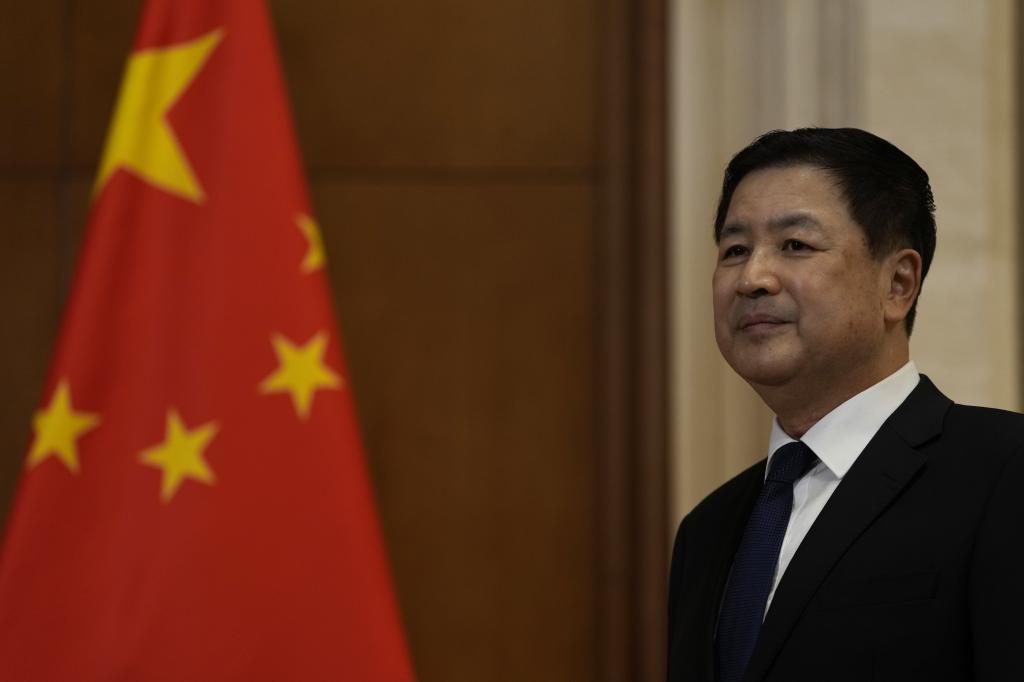China launched a new amphibious assault ship Friday, capable of launching fighter jets and designed to strengthen the navy's combat ability in distant seas.
The Sichuan, the first ship of the 076 type, is China's largest such ship yet, displacing 40,000 tons and equipped with an electromagnetic catapult which will allow fighter jets to launch directly off its deck, according to the official Xinhua news agency.
The ship is designed to launch ground troops in landing crafts and provide them with air support.
Developed by Chinese researchers, it's also equipped with an "arrestor technology" which allows fighter jets to land on its deck.
China's first amphibious assault ships, the type 075, launched in 2019.
China's People's Liberation Army Navy, or PLAN, has been working on modernizing its forces for more than a decade, with the aim of being able to operate globally rather than being restricted to waters near the Chinese mainland. China first managed to launch fighter jets with the new electromagnetic technology on its indigenously made aircraft carrier, the Fujian, which launched two years ago.
Chinese military expert Song Zhongping compared the Sichuan to a "light aircraft carrier," according to the Global Times.
The ship will undergo further testing, including sea trials.
China has the largest navy in the world and is consistently trying to upgrade its fleet. Recently, researchers found that the country is working on designing a nuclear-powered aircraft carrier, which would allow it to deploy its ships in distant waters without needing a base to refuel.
The U.S. currently has 11 aircraft carriers, all nuclear powered, allowing it to keep multiple strike groups deployed around the world at all times, including in the Asia-Pacific.
